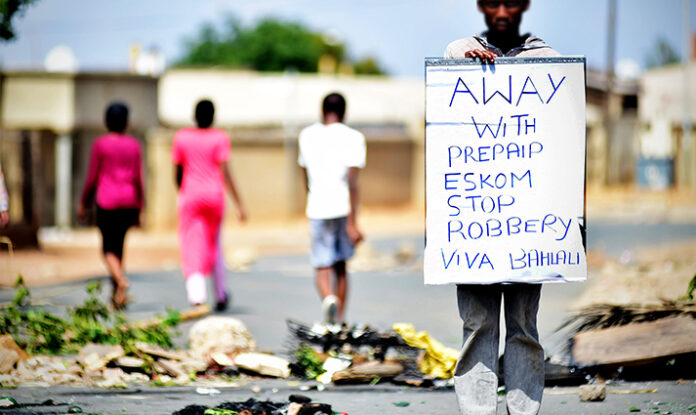Soweto resident Khaya Sithole says he has had to forgo buying certain food items to have enough electricity that can last him an entire month.
Sithole, 38, who lives in Freedom Park, said the rising cost of electricity has hit his pockets so hard that he had to cut down on buying cereal and fruit juices for himself so that he can cope with the huge electricity demand on his meagre salary.
He said by virtue of doing this he was able to keep the lights on every month.
Sithole, who works as a security guard at a company in Randburg, Johannesburg, refused to disclose his salary.
He said he spends on average R300 a month on electricity, which gives him around 110 units.
Sithole said he uses his electricity to cook every day, for lights, fridge and charging his electronic devices. He spends his salary on groceries, electricity, rent and transport to go to work.
Electricity tariffs
The National Energy Regulator of South Africa (Nersa) approved an increase in Eskom’s electricity tariffs for the 2024–2025 financial year in September, which brings Sithole’s plight to light.
Nersa approved a decision to increase Eskom’s electricity tariffs by 36.15% from April 1, 2025, to March 31, 2026.
Nersa said Eskom’s application “is premised on two processes. Foremost, the current Eskom application is a revenue requirement that Nersa must consider in line with the Electricity Regulation Act, multi-year price determination methodology, and stakeholder inputs through the public participation process.”
Sithole said he is unhappy with the approved 36.15% electricity increase decision.
“I am living from hand to mouth as it is. This increase will cripple me. It means I must now decide what is important between food and electricity,” said Sithole.
Lerato Pieterse, 36, who lives in Alexandra, Johannesburg, said she spends R200 a month on electricity and gets around 73 units.
Pieterse works as a cashier at a store in Sandton.
She said the units she gets are not enough to last her the entire month because of the cooking she has to do every day.
When her electricity units have run out, Pieterse said she has to plead with her colleagues at work to lend her some money to buy more electricity.
“My salary is not a lot. A huge chunk of it goes towards transport to go to work. The rest is for food and electricity,” said Pieterse.
“This new electricity price increase is just madness. I am just fed up with the politicians in this country. They do not care about ordinary people.”
Union opposes increase
Statistics South Africa’s national poverty lines for 2024 noted that at the food poverty line, a person needs R796 per month to survive in SA. The amount is an increase from R760 in 2023.
The General Industries Workers Union of South Africa president, Mametlwe Sebei, said the movement opposes Eskom’s 36.15% electricity tariff increase decision.
“Eskom’s outrageous price hike is a direct attack on the working class, poor, and middle-class people already struggling to survive, let alone keep up their standards of living, which have been in free fall since the onset of the now 15-year-old economic crisis,” said Sebei.
He warned that the proposed increase will have devastating consequences, exacerbating poverty and unemployment, increasing the cost of living, and compounding already vast class, racial and gendered inequalities.
“We call on all working-class communities and trade unions to unite against this attack and to hold Eskom management and government fully accountable for the crisis in Eskom as well as to refuse to pay for it,” said Sebei.
“We need the same anger and mass protests, like stay-aways we have always supported, to oppose the outrageous 36% electricity tariff increase.”



